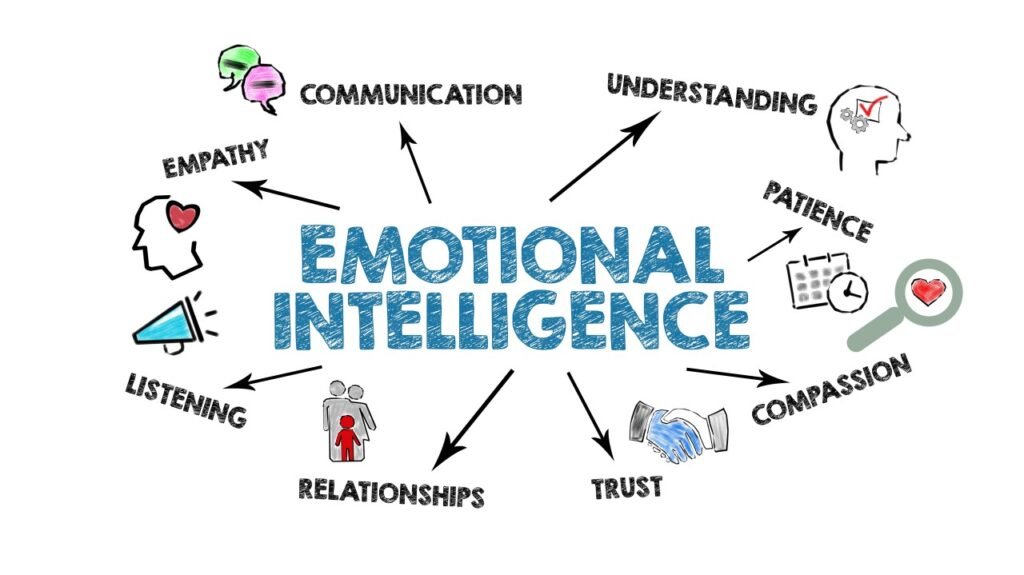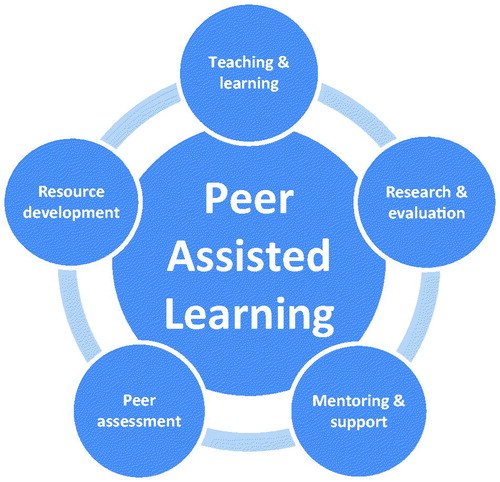Introduction
Pastoral clinical education (PCE) serves as a critical component in shaping ministers who approach their work with both heart and skill. While academic theology provides the intellectual foundation for ministry, PCE takes it a step further by emphasizing the practical, human side of pastoral work. It helps ministers integrate their theological education with personal experience, emotional intelligence, and real-world pastoral care. In the following article, we will explore how PCE contributes to shaping compassionate ministry, offering insights into the essential role it plays in helping pastors and ministry leaders effectively serve their communities.
Key Takeaway
Pastoral Clinical Education is a transformative process that helps ministers grow in their ability to offer compassionate, empathetic, and effective ministry. It integrates theology, emotional intelligence, and practical skills, ensuring that ministers are not only knowledgeable but also deeply compassionate in their care for others.
What is Pastoral Clinical Education?

Pastoral Clinical Education refers to a hands-on learning model where seminary students or ministry leaders engage in supervised practical ministry, typically in a clinical setting. These settings often include hospitals, counseling centers, prisons, or nursing homes, where pastoral care is required for individuals facing personal, emotional, and spiritual crises. PCE offers both structured educational opportunities and real-world ministry experiences, allowing ministers to develop their abilities to offer empathy, spiritual guidance, and pastoral counseling.
PCE is frequently associated with Clinical Pastoral Education (CPE), a program that emphasizes reflection, feedback, and learning from both successes and failures in real-life ministry situations. By engaging in PCE, ministers refine their approach to serving those in pain, helping them to deepen their compassion and build their pastoral identity.
The Connection Between Compassion and Ministry
Compassion is an essential characteristic for effective ministry. The Greek word “splagchnizomai” is often translated as compassion in the Bible and refers to a deep, gut-level empathy or care for others’ suffering. Ministry, in its truest form, involves an intimate, relational encounter with people, their stories, and their struggles. Effective ministry requires not only theological knowledge but also the capacity to relate to and walk alongside those in pain.
Compassionate ministry can help individuals feel seen, heard, and understood—this is particularly vital in settings where individuals may feel isolated, marginalized, or hopeless. The role of a compassionate minister is to reflect Christ’s love, offering healing and encouragement through both actions and words.
PCE plays a vital role in developing this compassion. The field-based learning opportunities allow ministers to witness human suffering first-hand and respond to it with sensitivity and care. Through these experiences, they learn not only to offer spiritual counsel but also to be present with individuals in their moments of distress, providing comfort, support, and hope.
How Pastoral Clinical Education Shapes Compassionate Ministry
1. Integrating Theological Knowledge with Practical Care
One of the primary roles of PCE is to help students integrate their theological education into real-life pastoral care. The intellectual work done in seminary equips students with a deep understanding of Scripture, doctrine, and theology. However, when placed in real-world pastoral settings, the theoretical knowledge can feel distant unless applied compassionately.
PCE serves as a bridge between knowledge and action. It allows ministers to move beyond academic learning to develop emotional intelligence, active listening skills, and spiritual sensitivity. Through clinical supervision, they can reflect on their experiences, receive feedback, and grow in their understanding of how theology and compassion can work together in ministry.
2. Developing Emotional Intelligence and Empathy

Ministry is often about walking alongside people during times of crisis, pain, and grief. This requires more than knowledge—it requires the ability to connect with others on an emotional and spiritual level. Through PCE, ministers engage in experiences that challenge them to cultivate emotional intelligence, which includes recognizing, understanding, and managing their emotions while also being attuned to the emotions of others.
In clinical settings, ministers encounter a variety of individuals, each with unique emotional and spiritual needs. By interacting with people in these vulnerable states, they learn to offer comfort and presence without being overwhelmed by the emotions of others. They also develop a deep empathy for people’s struggles, helping them respond with care and insight.
3.Building Practical Ministry Skills
Compassionate ministry involves more than offering emotional support. It requires practical skills such as counseling, crisis intervention, and conflict resolution. PCE provides ministers with hands-on experience in these areas. For example, ministers in clinical training may have to lead prayer services, offer grief counseling, or mediate conflicts in a pastoral setting. These experiences not only enhance their practical ministry skills but also help them learn the importance of appropriate boundaries, self-care, and pastoral ethics.
Through structured feedback and reflection during PCE, ministers can hone their skills and become more confident in their ability to handle the challenges they face in ministry. They learn that ministry is not a one-size-fits-all approach, and different individuals may need different forms of care.
4. Promoting Self-Awareness and Self-Care
A significant aspect of PCE is the development of self-awareness. Ministers often face emotional and spiritual challenges that can lead to burnout if not properly managed. By engaging in PCE, ministers learn the importance of self-care and the need to maintain healthy boundaries.
Supervision and reflection are central components of PCE, encouraging ministers to examine their emotional responses, personal biases, and spiritual practices. This self-reflection helps ministers understand their emotional triggers and responses, allowing them to serve others more effectively without losing their sense of self or becoming overwhelmed.
5.Cultivating a Compassionate Pastoral Identity
A core objective of PCE is to help ministers develop a pastoral identity rooted in compassion and service. Through personal reflection, supervision, and practical ministry experiences, ministers are encouraged to see themselves not only as religious leaders but also as compassionate caregivers. This identity is essential for sustaining long-term ministry work, as it reminds ministers of their primary calling—to serve others in love and humility.
PCE provides ministers with the tools to navigate their own spiritual journeys, helping them connect their faith to their daily work. By continually engaging in self-reflection and seeking feedback, they can develop a pastoral identity that is both grounded in theological principles and compassionate in practice.
Challenges in Pastoral Clinical Education

While PCE offers invaluable training for ministers, it also comes with challenges. Many ministers encounter personal and emotional struggles during clinical training. Encountering deep suffering can lead to feelings of helplessness, confusion, or frustration. The emotional toll of witnessing tragedy and loss can weigh heavily on ministers, which makes the development of self-care strategies even more critical.
Additionally, the need to integrate theological, emotional, and practical dimensions of care can sometimes feel overwhelming. Ministers may struggle with balancing their desire to offer immediate comfort with the need to maintain professional boundaries and ethical practices.
However, these challenges are part of the learning process. By working through these difficult moments in a supportive, supervised environment, ministers gain the skills they need to persevere through tough situations while maintaining their compassion and effectiveness.
The Psychological and Emotional Impact of Pastoral Clinical Education
1. Dealing with Emotional Toll in Ministry
Ministry is an emotionally demanding profession. Pastoral Clinical Education prepares ministers for the psychological and emotional toll of counseling, hospital visits, funerals, and crisis intervention. While PCE provides tools for developing empathy, ministers also need to learn to manage their emotional responses. By witnessing and walking through others’ pain, ministers may experience their own emotional vulnerabilities, including stress, compassion fatigue, or even trauma.
Supervision in PCE offers a safe space for ministers to process their emotional reactions to the challenging situations they face in ministry. This emotional processing is crucial not only for self-care but also for the minister’s ability to continue offering compassionate care in the future. Through supervision and peer support, ministers are guided on how to distinguish their emotions from the emotional needs of the people they serve, ensuring that they don’t carry an emotional burden that hinders their effectiveness in ministry.
2. Handling Conflict and Tension in Congregational Settings
Conflict is inevitable in any community, including faith-based communities. Whether it’s a disagreement about church policies, leadership struggles, or interpersonal issues among congregants, pastors are often called upon to mediate and restore peace. PCE prepares ministers by immersing them in these scenarios and offering practical tools for conflict resolution.
Ministers learn how to approach conflicts with a compassionate mindset, understanding that conflict often stems from deeper emotional and spiritual needs. PCE allows ministers to practice dealing with these conflicts in a way that acknowledges the feelings of all parties involved, while also remaining rooted in their theological framework. The aim is not only to resolve the conflict but also to foster healing and reconciliation in the community.
3. Navigating Cultural and Societal Differences
In today’s diverse society, ministers are often tasked with serving individuals from different cultural, social, and economic backgrounds. Compassionate ministry requires ministers to be culturally competent and aware of how different cultural experiences can shape people’s needs and perceptions.
PCE challenges ministers to engage with a wide range of individuals and understand the cultural factors that influence their experiences of suffering, healing, and spiritual needs. Cultural humility and sensitivity are key to fostering trust and offering relevant spiritual care. PCE programs often include training on cultural competency, ensuring that ministers are equipped to serve in a multiethnic, multicultural context.
4. The Role of Reflection in Ministry Practice
Reflection is one of the most powerful components of PCE. Through guided reflection, ministers are able to examine their experiences and develop a deeper understanding of their emotional responses, biases, and pastoral approach. Reflection helps ministers recognize patterns in their ministry work and allows them to adjust and grow.
Supervision is often structured around reflective practice, where ministers discuss their experiences with a supervisor or mentor. These conversations allow for deeper insights into the minister’s actions, thoughts, and emotional responses to pastoral situations. Through this process, ministers develop a more refined and thoughtful approach to their ministry, which enhances both their emotional and spiritual effectiveness.
The Value of Peer Learning in Pastoral Clinical Education

Another key benefit of PCE is the opportunity for peer learning. Ministers in training often work alongside each other in a group setting, which allows them to share experiences, offer support, and provide feedback to one another. This peer-based learning fosters a sense of community among ministers, reducing isolation and increasing collaboration.
The value of peer support cannot be overstated in ministry. Many ministers face situations where they feel overwhelmed or unsure of how to proceed. Peer groups provide a safe and encouraging environment where ministers can discuss challenges, share resources, and even pray for one another. This community of support reinforces the understanding that ministry is not a solitary task but a shared journey.
Peer learning in PCE also strengthens the overall quality of ministry. Ministers who learn from each other can gain fresh perspectives on complex issues and develop innovative ways to approach pastoral care. This sense of collective wisdom is an essential aspect of pastoral education that helps build a strong foundation for future ministry work.
The Lasting Impact of Pastoral Clinical Education
The effects of PCE extend far beyond the classroom or clinical setting. As ministers move forward into their ministries, they carry with them the lessons learned, the skills developed, and the self-awareness gained through their experiences. These lessons are continually refined as they encounter new situations in their ministry.
The lasting impact of PCE is seen in the way ministers approach ministry with a deep sense of compassion and purpose. Ministers who have undergone clinical education often report feeling better equipped to handle the emotional and spiritual needs of their congregants. They are more confident in their ability to offer pastoral care, knowing they have received the proper training and guidance.
Real-Life Testimonials: How Pastoral Clinical Education Shapes Compassionate Ministry
1. Testimony from a Hospital Chaplain
For one hospital chaplain, PCE was a transformative experience. “During my clinical training, I was placed in a trauma center, and I had to deal with families who had just received devastating news. The emotional toll of those moments was profound,” she shared. “Through my supervision, I learned how to offer a listening ear without becoming emotionally overwhelmed. It was about providing hope when there seemed to be none, and being present in moments where words often failed.”
This chaplain emphasized the importance of both theological education and emotional intelligence in providing compassionate care. “I learned that compassion isn’t about having all the right answers; it’s about showing up, listening, and offering spiritual comfort in the midst of pain.”
2. Testimony from a Pastoral Counselor

Another pastoral counselor reflected on the way PCE helped him develop critical counseling skills. “The emotional and psychological challenges in counseling are not easy,” he stated. “In clinical education, I learned not only to apply Scripture but also to understand the deeper emotional needs of the person sitting across from me. It taught me how to balance theological insight with the practical application of listening and emotional support.”
He went on to explain that PCE shaped his approach to pastoral counseling by helping him understand the significance of nonverbal cues and creating a safe space for people to express their grief, anger, or confusion. “Without clinical education, I don’t think I would have been as effective in navigating the complex emotional terrain that people face during times of crisis.”
3. Testimony from a Seminary Graduate
One seminary graduate shared how PCE transformed their understanding of ministry. “I went into ministry thinking that my role was primarily to preach and lead worship,” they said. “However, through PCE, I realized that ministry is so much more than delivering sermons. It’s about walking alongside people through some of the most difficult times of their lives—loss, grief, illness—and offering them not just answers, but presence and compassion.”
Also Read : What Are The Benefits Of Taking Medical Coding Classes Online?
Conclusion
Pastoral Clinical Education is essential in shaping compassionate ministers who are equipped to serve their communities with both theological knowledge and emotional sensitivity. By integrating academic learning with practical, hands-on ministry experiences, PCE ensures that ministers are prepared to offer both spiritual guidance and emotional support to those in need. As ministers navigate the challenges of their work, PCE serves as a valuable tool for personal and professional growth, ultimately helping them to develop a pastoral identity that is grounded in compassion, service, and faith.
FAQs
1. What is the difference between Clinical Pastoral Education (CPE) and Pastoral Clinical Education (PCE)?
While both terms refer to practical, hands-on ministry training, CPE typically refers to the formal education provided in a clinical setting, such as hospitals or counseling centers, while PCE is a broader term that can encompass any educational experience involving real-world ministry practice.
2. Is Pastoral Clinical Education only for seminarians?
While PCE is often associated with seminarians or those pursuing theological education, it can also be valuable for experienced ministers seeking to deepen their practice. PCE is designed to help individuals develop compassionate pastoral care skills, no matter where they are in their ministry journey.
3. How long does Pastoral Clinical Education last?
The length of PCE programs varies, but most programs run for one to two years. They typically involve a combination of fieldwork, supervised ministry, and reflection.
4. What types of settings are included in Pastoral Clinical Education?
PCE can take place in various settings, including hospitals, nursing homes, prisons, hospice care facilities, and mental health centers. The setting depends on the focus of the program and the population being served.
5. What role does supervision play in Pastoral Clinical Education?
Supervision is a critical component of PCE. Supervisors provide feedback, guidance, and emotional support to ministers in training, helping them reflect on their experiences and develop their pastoral skills.
6. How does Pastoral Clinical Education help with self-care?
PCE programs emphasize the importance of self-awareness and self-care. Ministers are encouraged to reflect on their emotional responses and to develop strategies for maintaining personal well-being while serving others.
7. Can Pastoral Clinical Education improve my effectiveness in ministry?
Yes, PCE helps ministers develop practical skills, emotional intelligence, and a deeper sense of compassion, all of which contribute to more effective and compassionate ministry.

